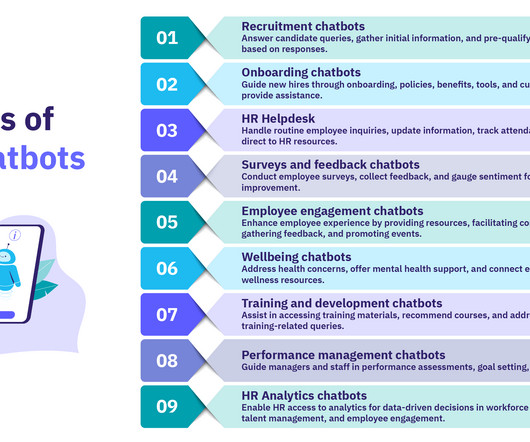A Knowledge Management Strategy for Non-Profits Working in Developing Countries
Conversation Matters
JUNE 25, 2012
I recently conducted a study of eleven non-profits to find out how knowledge management (KM) was being implemented in developing countries. In this article I have 1) outlined the findings from that study, and 2) developed a knowledge management strategy based on the findings. Staffing KM Positions. No KM Role.

















Let's personalize your content